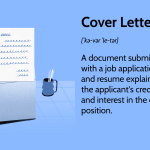During a job interview, an interviewer may ask you questions to establish your professional profile as an employee. The following example questions and answers can help you be prepared for your interview:
1. Imagine you’re the CEO of our company. What would you change?
This challenging question can provide an interviewer valuable insight into what you already know about their organization. To prepare, research the company and learn about what challenges it faces in its market and give examples of ways in which you would initiate improvement. When you answer, remain calm and positive to show your ability to remain respectful under pressure.
2. What are your plans if you aren’t hired?
This question can show the interviewer that you plan out your career objectives to support your goals. Your answer should showcase your ability to plan ahead, self-evaluate and set goals that help you advance. While you may not want to be negative in an interview, you can showcase your realistic mindset by describing how you plan to continue advancing your career if you don’t earn the role.
3. Describe your strengths outside of your career.
The interviewer may ask about your personal engagements outside the office to evaluate your skills along with your ability to take on challenges in your everyday life. Share some traits that showcase characteristics employers look for in a candidate, such as timeliness, organization, reliability and motivation. Try to include strengths that can help you succeed in your desired role.
4. Who has been the biggest source of inspiration in your life?
The interviewer may want to understand what kind of people in your life have helped motivate you to succeed and achieve your goals. In your answer, describe how this individual mentored, guided or otherwise inspired you to pursue your career interests. You can also include specific examples of times that your mentor supported your development.
5. What would have motivated you to stay with your last company?
This question can give the interviewer insight into the various aspects of your work environment that help you stay engaged and productive. They may also want to know what their organization can do to retain qualified talent. Use your answer to describe one or two positive features of your past organization and to give an example of something you would improve. You can also use this time to describe why the new role may be a good fit for you.
6. What is something you’re passionate about?
Questions about your interests can give the interviewer an idea of your motivation level and ability to keep yourself engaged in projects and tasks. Describe things you pursue in your personal life and highlight how pursuing your passions supports your skill development and learning. Try to select relevant passions that connect to your role.
7. When was the last time you traveled?
Even if travel isn’t a job requirement, the interviewer may want to know how you embrace diversity and plan out itineraries. Showcase your organizational skills with examples of how you planned your last trip and highlight aspects of your travels that provided you with new perspectives and opportunities to learn something new. You can also use this opportunity to describe positive personal experiences that may have shaped your career path.
8. How often do you set goals in your personal life?
Personal development goals are as equally important as career goals, and the interviewer may want to know that you take steps to maximize your potential in each. Discuss any goals you have for improving an area of your life and the steps you’re taking to achieve success. You can also connect these goals to any career goals you have.
9. Tell me about a time when you acted on a new idea.
An interviewer may ask this question to evaluate how you apply your ideas to develop action plans and achieve outcomes. Talk about ideas you’ve had in the past that you acted on to achieve a result, such as completing higher education, learning a new skill or making an alternative method for a specific process. Describe the benefits of acting on a new idea, even if it appeared challenging.
10. What’s one of the most challenging lessons you’ve learned in your life?
During an interview, your interviewer may find ways to evaluate how you handle stressful situations and solve problems. In your answer, use the STAR technique to highlight the situation, the required task, your actions and the results. This can show an interviewer that you’re able to reflect on your past experiences to improve your performance.

